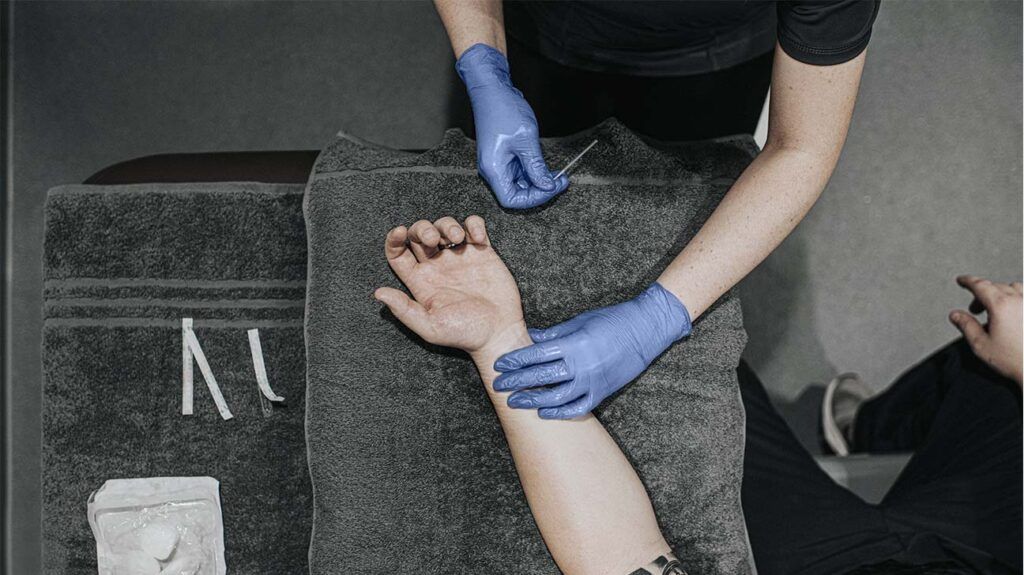Acupuncture for ADHD may be an effective treatment. However, research is ongoing on how it can help attention deficit hyperactivity disorder (ADHD) symptoms.
Acupuncture is a treatment technique that derives from traditional Chinese medicine (TCM). The technique involves applying small needles or pressure to specific points in a person’s body.
This article discusses whether acupuncture is an effective treatment for ADHD symptoms, whether it can work for children with ADHD, and what Chinese medicine says about ADHD. It also discusses how common acupuncture treatments for ADHD are, how safe they are, and the acupuncture pressure points for ADHD.

People use acupuncture to treat a number of conditions,
ADHD is a
Although doctors usually diagnose people with ADHD in childhood, it may often last into adulthood. According to the American Psychiatric Association (APA), approximately 8.4% of children and 2.5% of adults in the United States have ADHD.
There is currently no cure for ADHD. However, several treatments
Additionally, several scientific journals have investigated whether acupuncture is an effective treatment for ADHD. They have found that it might help with symptoms of the condition. However, scientists do not yet know for sure whether it is effective or how well it can help.
According to the National Center for Complementary and Integrative Health (NCCIH), there is
Research into acupuncture’s effects on ADHD is ongoing. A 2023 overview states that although the technique might improve ADHD symptoms, larger studies with higher-quality data and methods are necessary to draw more robust conclusions.
Acupuncture may work for children with ADHD, though there is
A
Acupuncture points are specific points on a person’s body where practitioners insert needles. They choose specific points to place the needles according to the condition or body part they aim to treat.
There appears to be no standard set of acupuncture points for ADHD. However, the above
- DU20 (Baihui)
- SP6 (Sanyinjiao)
- EM1 or extra point (Sishencong)
- EM2 or extra point (Yintang)
- LV3 (Taichong)
- DU24 (Shenting)
- HT7 (Shenmen)
- PC6 (Neiguan)
- KI3 (Taixi)
- LI4 (Hegu)
According to a
TCM regards ADHD as an expression of a “Heart–Mind (Xin) imbalance” rather than a condition or disease. It attributes ADHD symptoms as factors of:
- excess heat or wind in a person’s head
- liver qi stagnation
- possible complications from dampness, which may stem from issues in a person’s spleen and kidneys
TCM treatments aim to restore balance in a person’s life force to treat conditions such as ADHD.
According to the above 2023 review, practitioners use acupuncture extensively to reduce symptoms in people with ADHD.
There does not appear to be any reliable data on exactly how common the technique is for ADHD in the United States. The
According to the NCCIH, experts
Local side effects
The following are answers to common questions about acupuncture and ADHD.
What therapies work best for ADHD?
Healthcare professionals can typically help treat a person’s ADHD with medication or therapy. A combination of both is often the best treatment option.
Is ADHD inherited from the mother or father?
Scientists
Acupuncture is a treatment where practitioners insert small needles into specific points around a person’s body. It may help with the symptoms of ADHD.
There is no conclusive scientific evidence yet to prove that this technique is an effective treatment for ADHD. However, scientists continue to investigate it as a method to improve ADHD symptoms.
Experts generally consider acupuncture a safe treatment if a qualified and experienced practitioner performs it. Many people use acupuncture to treat a wide variety of conditions.
